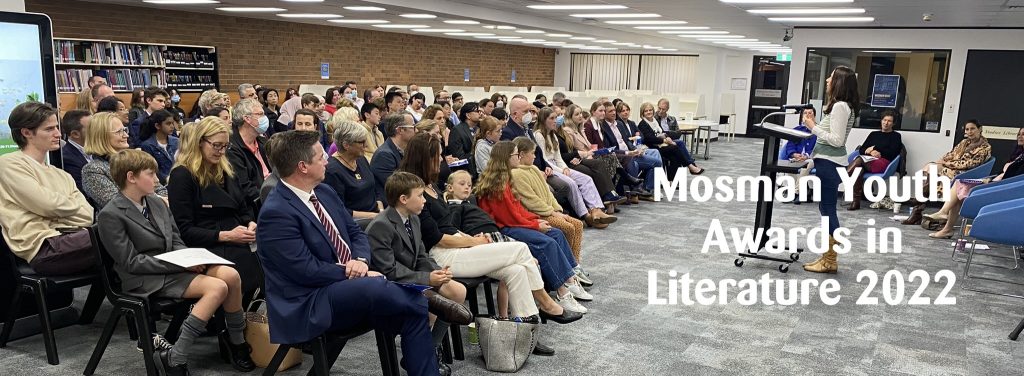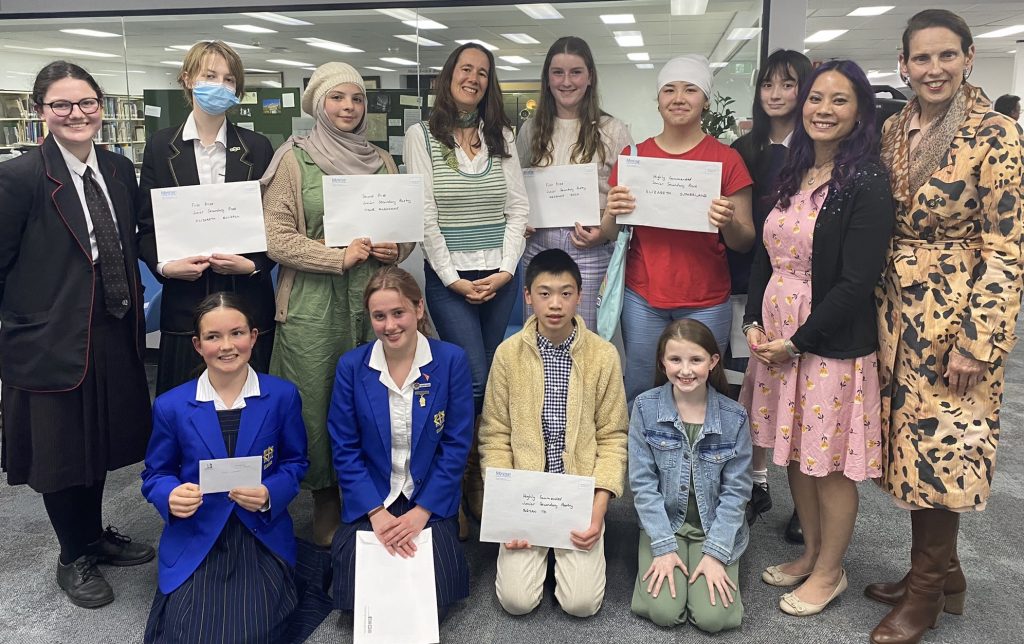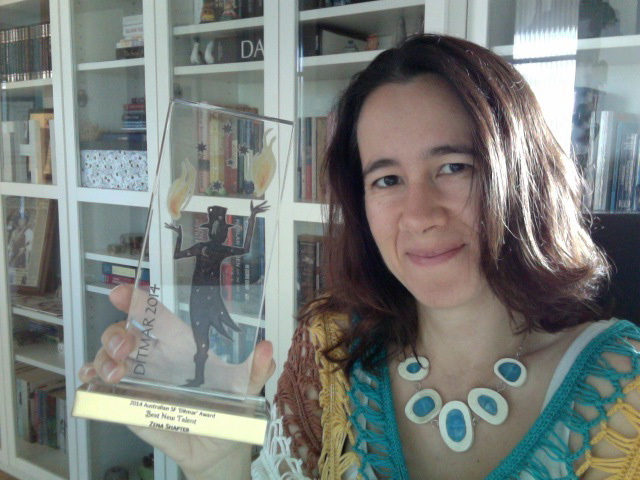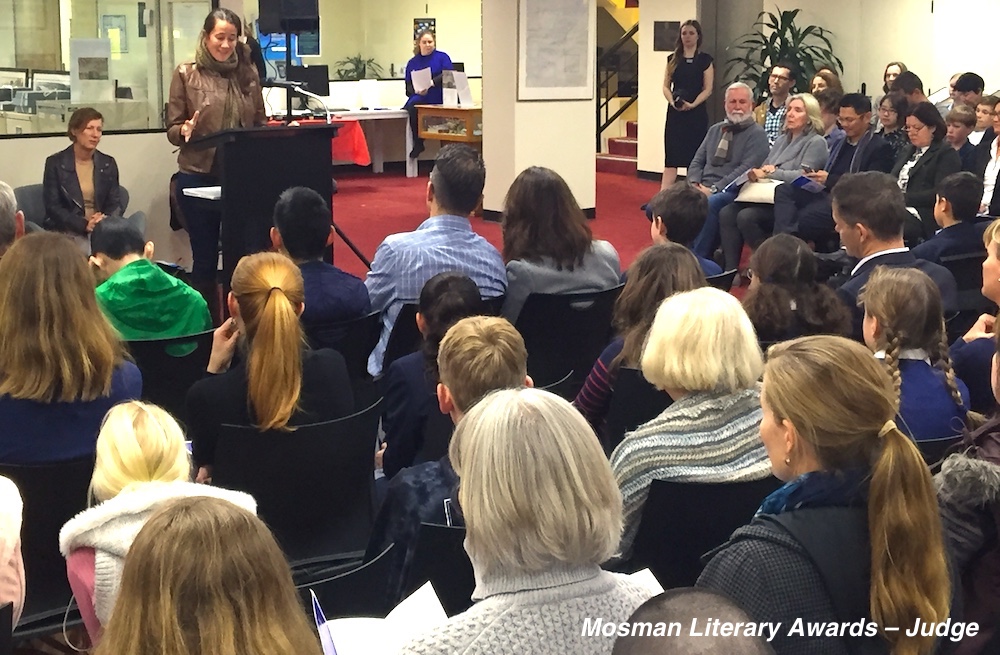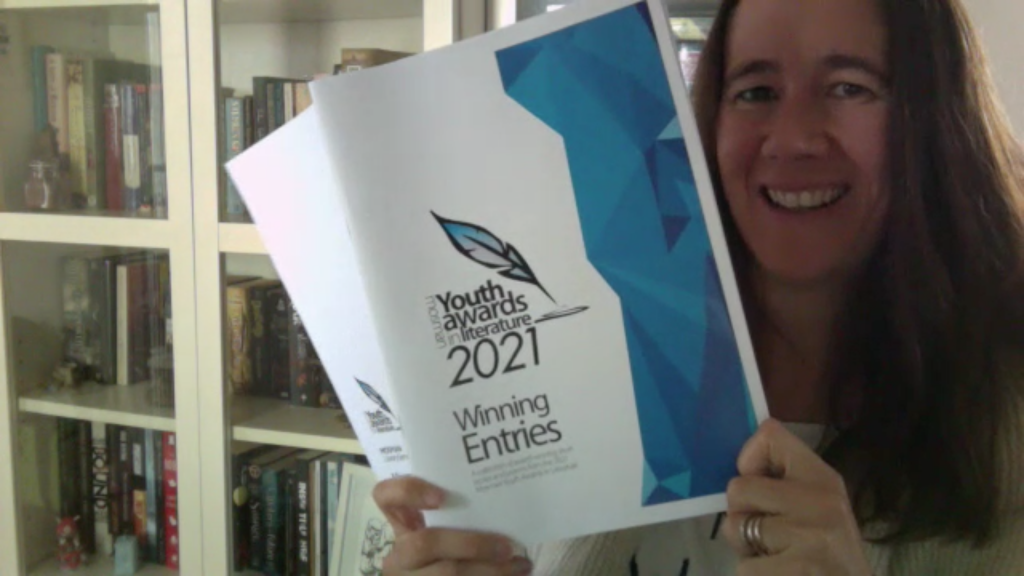What does it take for a short story to win a writing competition?
A lot. Not only does a story have to be incredibly well written, but the judge has to connect with it, and it has to be so memorable that they feel unable to turn away and award first place to any other story.
Having now judged literary competitions since 2015 – including the Mosman Youth Awards in Literature for six years, the Northern Beaches Writers’ Competition and the Australasian Horror Writers’ Association Award for Short Fiction – I’m even more amazed than ever that I’ve won over a dozen national writing awards myself, because it’s just so hard to achieve.
For that reason, usually this time of year I offer writers my ‘top tips’ for writing a winning story, based on that year’s worth of entries, and I list what writers can do and avoid doing to increase their chances of success (just search for the word ‘competition’ on my blog). But there’s also a certain feeling I get when reading a winning story, when I mutter to myself ‘that’s it!’, and that feeling is perhaps more important than any other insight I can offer.
A ‘that’s it!’ story may not open with a ‘sizzling start’ like they teach in creative writing classes. It needn’t even orientate me with a setting or character, using a flurry of excellently applied literary techniques as classes also often recommend. I may not even know exactly what’s going on…
I was in fourth grade, nine years old at the time. It was around this time that boys and girls started to show interest in one another, beyond just being friends. There was lots of giggling, and whispering, and secrets.
2020 Winner of the Mosman Youth Awards in Literature, Senior Prose: ‘Invisible’ by Leilani Nyman
Wake.
Where am I? Not home. New place. Is it home? Four white, padded walls. White floor. Everything white. The only colour is coming from my orange jumpsuit. I’m lying down. A dull, throbbing pain appears in the back of my head. Why am I here? What do I remember? Nothing. Who am I? Nothing.
2019 Winner of the Mosman Youth Awards in Literature, Senior Prose: ‘The 4784 Incident’ by Isaiah Woods
But I will know one important thing: there is a character who is worried about something that’s important to them, and that will be enough to pull me through to the next line, and the next, until the story is ending and I’ve discovered all the rest without even realising.
A story like this will demand my attention, even after a long day of editing other stories or helping writers create words, even when my family are moving around the house getting ready for school, or sport, or dinner, or bed, even when my mind is full of the thousand and one things I still have to do with my own writing. Everything else will disappear other than that story, because its character is worried about something important to them.
You know that comfortable silence? Like, the hush before a movie starts in the cinema. Or, when you run out of conversation, but the quiet says more than words could. I first felt it lying on my bed that day. I was staring up at the ceiling, tracing the lines of shadows cast across my room, feeling mad at you and him for everything you’ve done.
2021 Winner of the Mosman Youth Awards in Literature, Senior Prose: ‘Dear Friend’ by Matilda Meikle
The subject of the story in question won’t matter. It may even be cliché – after all, there are few stories that haven’t already been told. This year’s entries to the Mosman Youth Awards in Literature, for example, covered all the standard topics and more: relationships, family, abuse, death, grief, ageing, poverty, sexuality, politics, suicide, immigration, refugees, indigenous issues, war, theft, fishing, blindness, HIV, Nazis & the holocaust, school, segregation, and social media. Sometimes, of course, the subject can be very unique…
The arrival of the 1st of March grows more horrific as I get older. Last year’s Annual Genocide of the Weak (or the AGW) was the worst to date. My father and my sister. My mother went the year before. It’s a televised event. I watched my family die on the entertainment channel.
2018 Winner of the Mosman Youth Awards in Literature, Senior Prose: ‘What Happens at the Everton Pier’ by Sophie Sheppard
But whatever the subject, when explored in a winning story, it will clearly and decisively matter to the writer. Or seem to matter. Indeed, whether or not it does actually matter to the writer, I may never know! But when I’m reading this type of story, I am utterly convinced that it does matter. The writer cares, the character cares, and therefore I care.
When I’m writing stories myself, I do this by putting myself completely in the head of a character before I start to write: I imagine myself as that character and, in that moment, everything they believe: I believe. It’s the most fun I have when creating stories, and the best way to ensure that what matters to my character goes on the page.
Otherwise, readers may not grasp what, if anything, matters; and if nothing matters, why write, why create, and why submit what you create for a competition, an anthology or magazine? Perhaps what you wrote was just a writing exercise instead, well executed but not truly felt? Perhaps someone else suggested the story’s subject and, though the writer though it a good idea, they didn’t truly feel it?
Either way, I can tell when something does or doesn’t matter, and that makes all the difference to me as a judge, and a reader. Fellow readers, doesn’t it make a difference to you?
